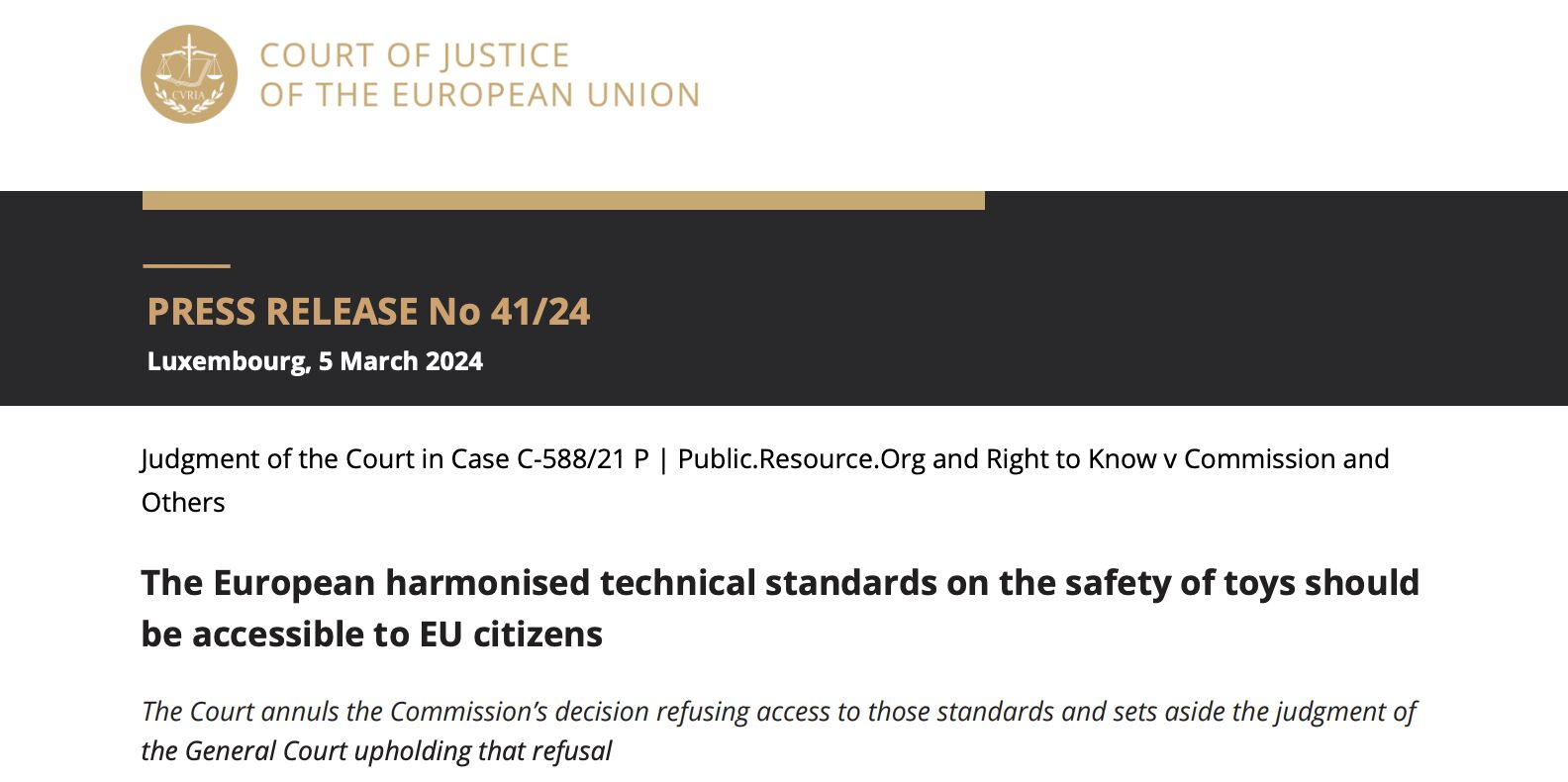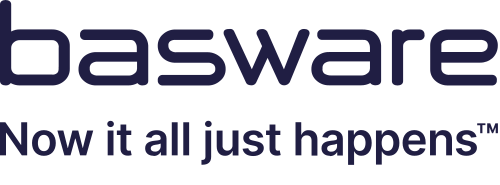The EU Court of Justice recently ruled to make EU Norms (“harmonised standards”) available for free if referenced in the laws.
See the official press release No 41/2024 (5 March 2024) on last week’s decision directly at the official web site of the Court of Justice of the European Union here: https://curia.europa.eu/jcms/jcms/Jo2_7052/en
Surely that would include e-Invoicing standards, right? Well, in short: yes and no.
And the e-Invoice core “Semantic Model” is available for free anyways already – simply because the European Commission had the foresight (and paid enough money up-front) to require its publication.
The case C-588/21 argued before the court used technical standards for the safety of toys as the actual situation; still, the decision is considered to be a model for any similar legal and technical constructs. Analogously, one would assume this means that the entire EN 16931 is going to be available for free as well – after all, it’s referenced in the Directive 2014/55/EU and required regulation to implement or validate electronic invoicing services. To further analyse this, we need to dig into the various parts of the EN 16931.
Currently, the “core” semantic model contained in EN 16931-1 is available for free, as is CEN/TS 16931-2 containing the “List of syntaxes that comply with EN 16931-1”.
The European Commission required these 2 normative specifications to be made available for free when initiating the standardization process. The corresponding publication process turned out to be long and costly but ultimately achieved the goal.
The authoritative technical details about mapping the model to syntaxes are available for a charge only. These are covered in parts CEN/TS 16931-3 (with its 4 sub-parts).
These are not designated “EN” but “CEN/TS”, therefore indicating these are “Technical Specifications” supporting the normative documentation contained in the “harmonised standard”. As such, the copyright is deemed (yet) more important than free access and therefore the national standards bodies may continue to charge a fee for access.
The same applies to the remaining parts of the EN 16931 family, namely CEN/TR 16931-4, -5 and -6. The “TR” indicates a “Technical Report” which also continues to be non-free in access only.
In summary, this means that new releases of the “harmonised standard” itself may be published faster in the future. But unfortunately, the remainder is expected to remain protected and not change access level.




